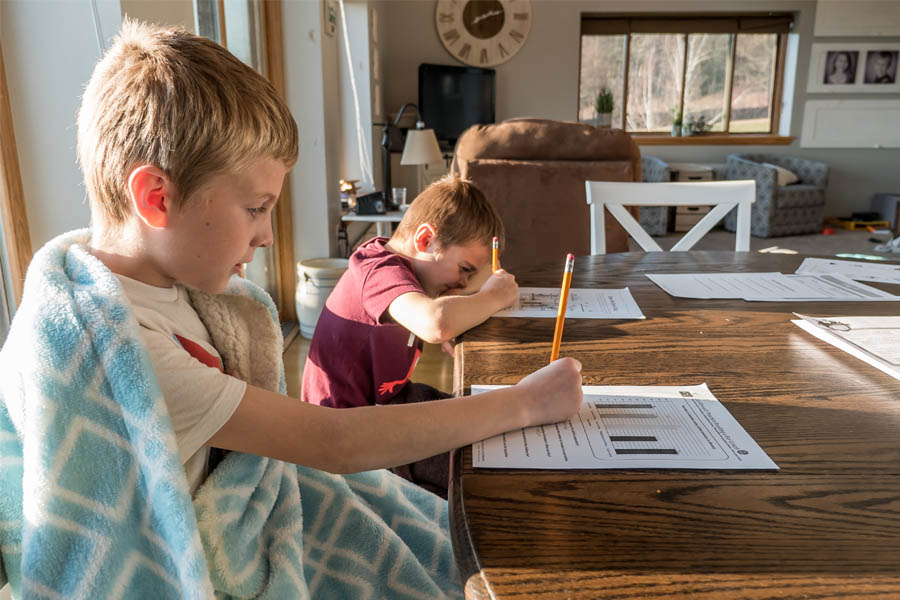Found what you're looking for?
An average student gets every about 30 minutes of homework a day per class. If one has 7 periods a day, that makes 3 and a half hours of homework every night! Imagine the worst case: (show visual number 1 and 3) you stand up at 6 o'clock in the morning to get ready for school Less Homework = More Learning By Lenore Skenazy My kids’ public school released kids from homework a few years ago — a move met with some pushback. As the NY Daily News put it: Parents Outraged After Principal Dumps Homework for more Playtime.. As if only the time spent bending over worksheets is learning! blogger.comted Reading Time: 6 mins Why You Should Give Out Less Homework - Teach 4 the Heart

Why Should Students Have Homework?
The cons of less homework include: Students and teachers may not have the opportunity to work more closely together. Students may never explore the course in-depth if they are not given assignments in those areas. Parents may not have much impact on their children’s education Less homework means less tracking and grading for you. If this were the only reason for giving less homework, then it would not be a very good one. But as it stands, there are lots of great reasons to give less homework, and this one is just a little perk for us teachers. �� How to Give Less Homework Online homework help is not merely a way to make grades better and to finish all tasks in time, it's personal attention and support. Websites offer plenty of subjects to work at, but according to searches most popular (as it's complicated to understand) is math homework help. This subject is a nightmare for both schoolchildren and their parents
Wrapping Up
Less homework means less tracking and grading for you. If this were the only reason for giving less homework, then it would not be a very good one. But as it stands, there are lots of great reasons to give less homework, and this one is just a little perk for us teachers. �� How to Give Less Homework One of the positive effects of homework is that it forces decision making and compromises to be made. 4. Homework Opens A Bridge Of Communication Homework creates a connection between the student, the teacher, the school, and the parents. It allows everyone to get to know each other better, and parents can see where their children are struggling There are many benefits of less homework, including these ten: Students are motivated and encouraged to learn. The essence of teaching goes beyond simply handing students a tool; one has to teach them how to use it – in a creative and fun way. If there is homework, it should be at least engaging and fun. More relaxation time

Recent Posts
One of the positive effects of homework is that it forces decision making and compromises to be made. 4. Homework Opens A Bridge Of Communication Homework creates a connection between the student, the teacher, the school, and the parents. It allows everyone to get to know each other better, and parents can see where their children are struggling The cons of less homework include: Students and teachers may not have the opportunity to work more closely together. Students may never explore the course in-depth if they are not given assignments in those areas. Parents may not have much impact on their children’s education Instagram Security

Post navigation
The cons of less homework include: Students and teachers may not have the opportunity to work more closely together. Students may never explore the course in-depth if they are not given assignments in those areas. Parents may not have much impact on their children’s education Less homework means less tracking and grading for you. If this were the only reason for giving less homework, then it would not be a very good one. But as it stands, there are lots of great reasons to give less homework, and this one is just a little perk for us teachers. �� How to Give Less Homework One of the positive effects of homework is that it forces decision making and compromises to be made. 4. Homework Opens A Bridge Of Communication Homework creates a connection between the student, the teacher, the school, and the parents. It allows everyone to get to know each other better, and parents can see where their children are struggling
No comments:
Post a Comment